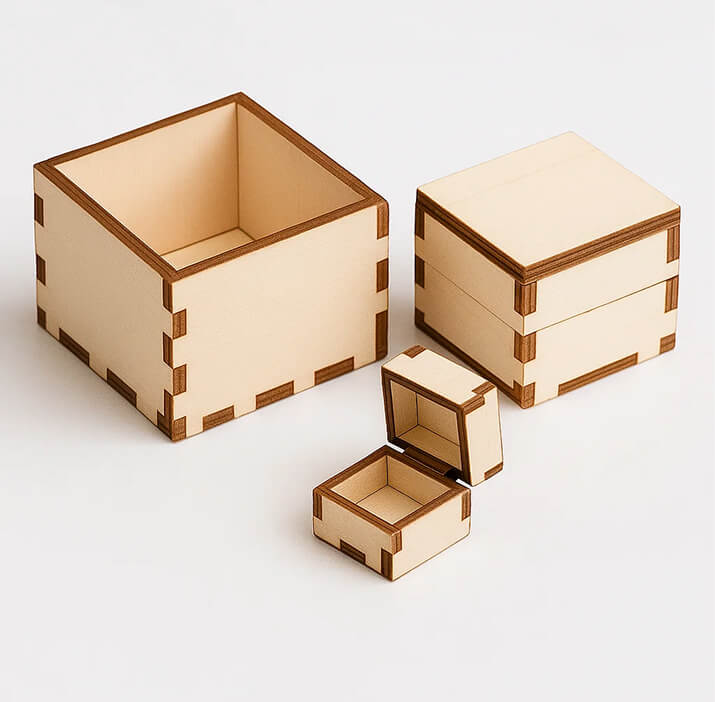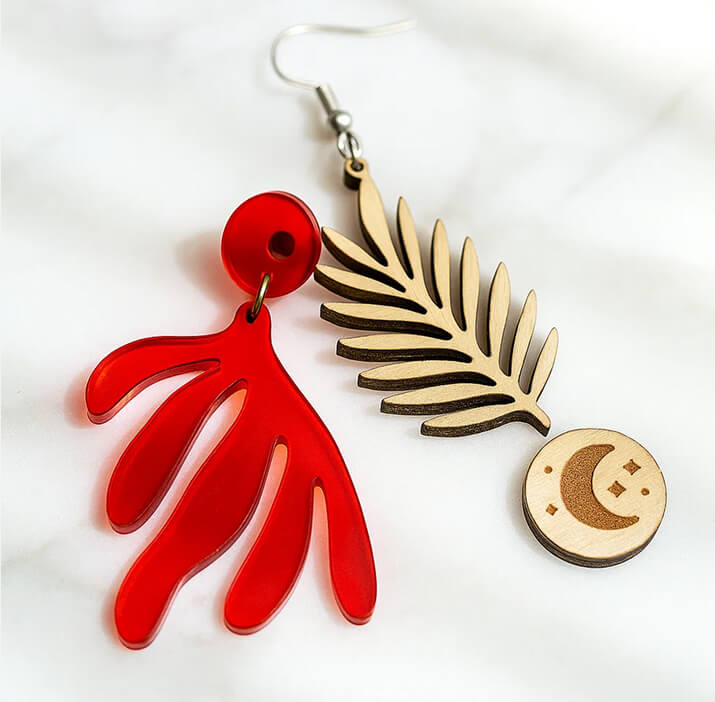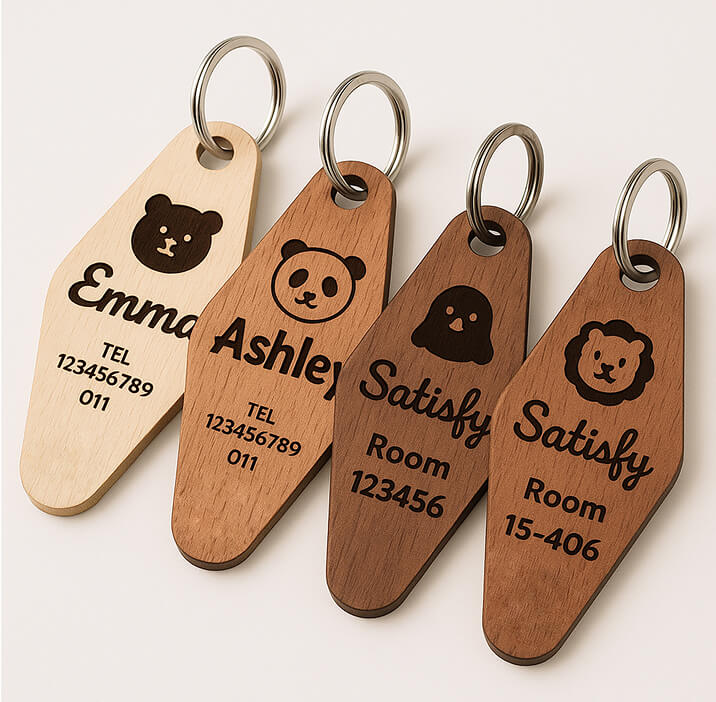![[Laser cut and engrave] Table saw blade height set up Jig](https://image-res.xtool.com/resource/xtool/community/attachment/xtool-community/2aa2d49c-8494-44de-965d-be02ff1f8161?x-oss-process=image/resize,w_1200,h_900,limit_0/interlace,1/format,webp/auto-orient,1)
Table saw blade height set up Jig

Information
When using my table saw, I often need to accurately set the height of the blade. This can be tough, but in this how-to, I will show you how to leverage the accuracy of your laser engraver to crate precise jigs to help with setup.
Instruction
Step1: Plan the design
The first step in this project is to consider the heights you need. I chose to do some common heights of ¼, 1/8, and ½. You can use these steps to create any size you need.
Step2: Create the jig
Since all of my heights are under 1 inch, I inserted a right triangle with a height of one inc. I then added a rectangle. I will size the rectangle to the height needed.
Step3: Creating the height notch.
At first thought, the solution seemed simple, just create a rectangle that is exactly ½ an inch and subtract it. This method however, is inaccurate because it does not account for the kerf of the laser. My laser is a D1 with a 5w laser. The kerf is .08 mm, which is basically .003 inches. We will need to subtract this from the height of the notch. By doing this we will move the laser down the width of its cut, so that the outer edge of the cut will be exact height of the notch used for setup.
The good news is, If you mess this part up, it is only .003 inches off, so it is minimal. You will still be very close.
Step4: Copy, adjust, and add labels
Once we have our first triangle and rectangle set up ready to subtract, let's first copy the two shapes and paste them to the side. You can then subtract the rectangle from the triangle to make the notch
Using the copied parts, use the same steps as before to set up the next jig. Just remember to copy and past before you subtract it.
Finally, I added a text label to each jig so I know the height it is measuring.
Step5: Rotate to Minimize Material Use
The last step is to move the parts so that they fit tightly together. Doing so will minimize the amount of material used.
Step6: Settings
The settings are for the D1 5W laser. You may need to adjust the settings for your laser configuration.
Be sure to follow all the safety guidelines for your laser and always wear personal protective equipment when the laser is in operation.





